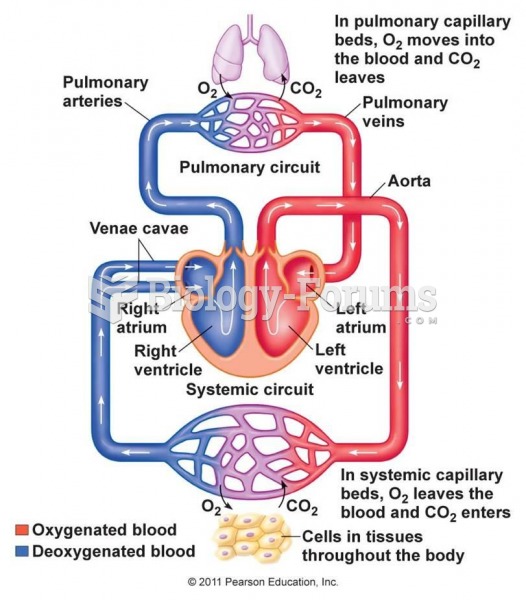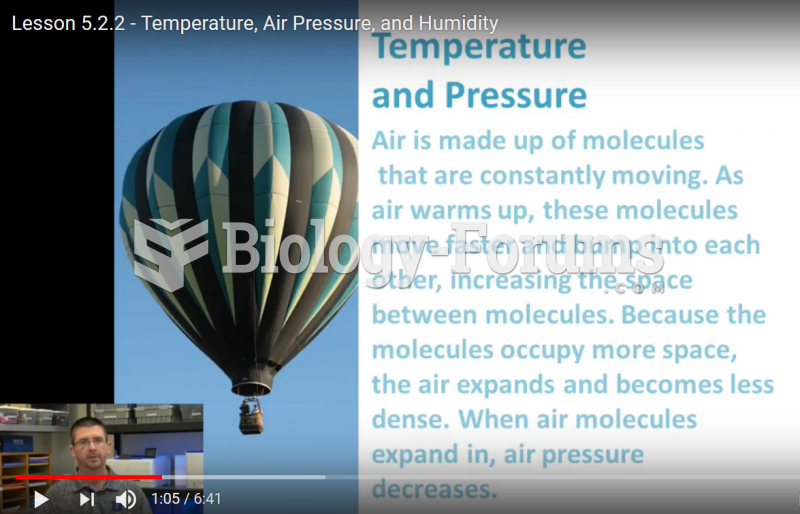Answer to Question 1
Correct Answer: 1
Rationale 1: The vasomotor center reacts to information from baroreceptors and chemoreceptors.
Rationale 2: The anterior and posterior pituitaries do not signal the vasomotor center of the brain to regulate blood pressure.
Rationale 3: The adrenal gland does not signal the vasomotor center of the brain to regulate blood pressure.
Rationale 4: The medulla oblongata is responsible for respiration, circulation, and other body functions. The chemoreceptor trigger zone is one of the emetic zones in the brain.
Global Rationale: The vasomotor center reacts to information from baroreceptors and chemoreceptors. The anterior and posterior pituitaries do not signal the vasomotor center of the brain to regulate blood pressure. The adrenal gland does not signal the vasomotor center of the brain to regulate blood pressure. The medulla oblongata is responsible for respiration, circulation, and other body functions. The chemoreceptor trigger zone is one of the emetic zones in the brain.
Answer to Question 2
Correct Answer: 1
Rationale 1: Peripheral resistance is defined as the friction that the blood encounters in the arteries.
Rationale 2: Peripheral resistance is defined as the friction that the blood encounters in the arteries.
Rationale 3: The resistance exerted on the heart by the pulmonary artery is known as pulmonary vascular resistance.
Rationale 4: The question can be answered correctly by the nurse. There is no need to ask the health care provider to return.
Global Rationale: Peripheral resistance is defined as the friction that the blood encounters in the arteries. The resistance exerted on the heart by the pulmonary artery is known as pulmonary vascular resistance. The question can be answered correctly by the nurse. There is no need to ask the health care provider to return.







